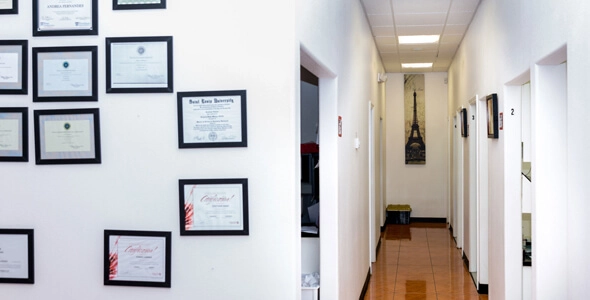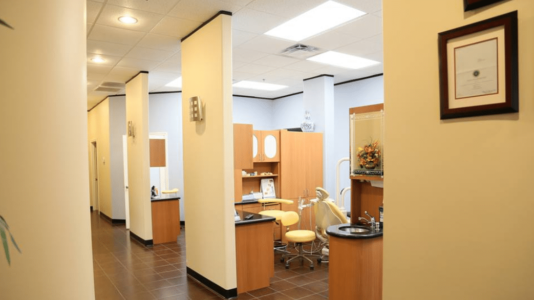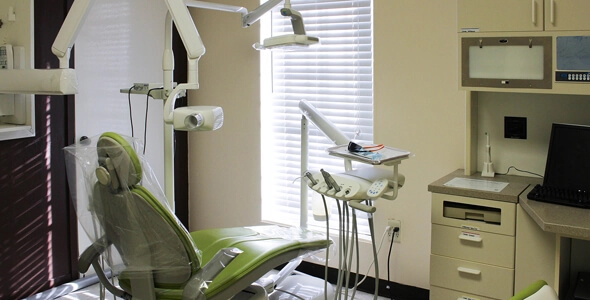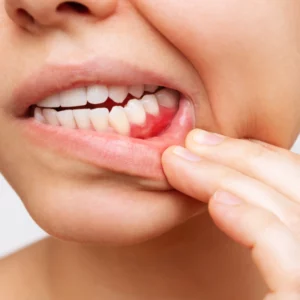Traditional dentures are a popular option for tooth replacement. When properly cared for and maintained, dentures should last for years. However, in some cases, they will become loose no matter how well you care for them. Some of the most common reasons for loose dentures include:
- Bone resorption
- Wear and tear
- Poorly fitting dentures
A Dental Care can help with your loose dentures. We offer a variety of dental services for full and partial dentures.
Dentures: How Tight Should They Be?
Dentures should fit snugly on the gums without putting too much pressure. There should be enough suction on upper dentures to keep them in place, but they should not be difficult to remove. Bottom dentures should float above the gums but should have enough suction to hold them in place. Partial dentures should align with your natural teeth.
Common Reasons for Loose Dentures
There are several reasons for loose dentures. The most common ones include:
Bone Resorption
Jawbone deterioration, or bone resorption, is the most common reason for loose dentures. When teeth are missing, the jawbone will begin to change shape due to the lack of stimulation from the tooth roots. Since the jawbone is no longer being used, the body will send those cells elsewhere in the body. If dentures are already uncomfortable, the pressure from them sitting on the gums may worsen the issue.
Wear and Tear
Another common reason for loose dentures is everyday wear and tear. Damage may occur if left to soak in the denture solution too long or cleaned improperly. This is especially true of acrylic resin dentures. Always use lukewarm water to clean dentures, as hot/boiling water may cause them to warp. It’s also important to be careful when cleaning dentures with metal clasps.
Everyday wear and tear also includes eating. Avoid biting down on foods that are hard or chewy when possible, take smaller bites, and chew on both sides of the mouth.
Poorly Fitting Dentures
When getting new dentures following tooth extraction, it’s important that they fit, which means waiting for your mouth/gums to heal fully. Typically, patients are given temporary dentures to fill in gaps left by missing teeth. Once healed, the dentist will create a mold of the gums and surrounding teeth to order the dentures.
When new dentures are placed, it’s important to let the dentist know if something doesn’t feel right so that adjustments can be made. However, it’s important to note that it does take time to get used to new dentures.
Can Weight Loss Make Your Dentures Lose Their Grip?
While weight loss can improve your confidence and health, it can also have an unintended consequence for denture wearers. It can cause dentures to become loose. This is because your body’s fat reserves are depleted, which can cause facial muscles to weaken.
How to Fix Loose Dentures
There are several ways that you can fix loose dentures. The quickest and easiest way is with denture adhesive. However, this is most effective for dentures that are only slightly loose. If your dentures are significantly loose, you may need a reline or even a replacement to ensure the best fit.
If you want a more permanent solution, you may want to consider implant-supported dentures, often referred to as overdentures. Implant-supported dentures offer better functionality and stability over traditional dentures. There are two types of implant-supported denture options:
- Bar-retained: also referred to as stud-attachment dentures, these contain sockets that fit onto ball-shaped connectors on the dental implants.
- Ball-retained: bar-shaped attachments on the denture attach to dental implants
While these are held in place and protect the health of the jawbone, they are still removable and must be taken out for cleaning every night.
Implant-retained dentures are a fixed option in which the denture is permanently attached to a set of dental implants.
Loose Dentures FAQs
If you have questions about dentures or other tooth replacement options, the team at A Dental Care can help. We offer a variety of tooth replacement services and will work with you to determine the best option for you based on your needs, expectations, and budget.
Are loose dentures common?
New dentures should fit snugly, but still be easy to remove. However, without the stimulation of the tooth roots, the jawbone will deteriorate, which will lead to changes in the ridge. This can make dentures feel loose, which can usually be resolved with a reline.
What is the hardest food to eat with dentures?
There are several foods that are challenging to eat with dentures, including:
- Hard foods, such as nuts and raw veggies
- Steak
- Pork chops
- Peanut and other nut butters
- Bread with seeds
- Chewing gum
Does denture adhesive help with eating?
If dentures fit properly, adhesive should not be necessary. However, if dentures are loose, denture adhesive can provide stability and hold them in place, allowing patients to eat and speak without worrying that their dentures will slip and slide around or fall out.













